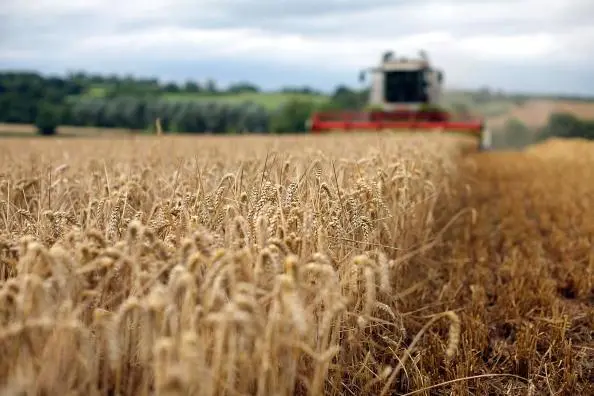PHOTO
SINGAPORE - Chicago wheat futures edged higher on Wednesday, gaining for a second day and trading near a 1-1/2 year high, with potential export curbs by Russia underpinning prices.
Soybeans eased, although losses were limited, as the market awaited signing of a U.S.-China Phase 1 trade deal later in the day that could reopen China's giant market to U.S. grain and farm product exports.
The most-active wheat contract on the Chicago Board of Trade (CBOT) added 0.4% to $5.70-1/2 a bushel by 0309 GMT. On Tuesday, the market climbed to its highest since Aug. 20, 2018 at $5.73 a bushel.
Soybeans were down 0.1% at $9.41-3/4 a bushel, while corn was flat at $3.89 a bushel.
"More signs of tighter supply are emerging," said Tobin Gorey, director of agricultural strategy, Commonwealth Bank of Australia.
"Egypt is paying higher prices for wheat at their tender.
Market chatter also has it that Russia is considering capping wheat exports in the first half of 2020 to preserve domestic supply."
Russia's agriculture ministry is looking to set a non-tariff quota for grain exports of 20 million tonnes in January-June, it said in a statement on Tuesday, adding the quota would be scrapped later in the most active part of season for trading.
This could result in higher demand for U.S. wheat, which has struggled to win business.
Egypt's main state wheat buyer purchased 240,000 tonnes of Russian and Romanian wheat in an international purchasing tender. Prices including cost and freight (C&F) ranged from $248.85 to $249.90 per tonne, up about $3 to $4 from an Egyptian wheat tender on Jan. 8.
U.S. and Chinese officials are set to sign a Phase 1 trade deal that may allow the two sides to begin resolving their trade dispute, which led to cuts in exports of U.S. soybeans, corn and other farm products to China.
Despite the deal, U.S. exporters face tough competition from a huge soybean harvest in Brazil in early 2020 following recent good weather.
Commodity traders and analysts are struggling to map out how China will reach the eye-popping amounts it is committing to buy from the U.S. under the trade deal.
Argentina's soybean and corn crops are in still in the earlier growth stages and the crop-growing regions ended 2019 on the driest note in several years, Karen Braun, a market analyst for Reuters, wrote in a column.
But recent rainfall has been helpful and the temperature outlook in the Pacific Ocean has grown more supportive of good Argentine harvests, she added.
(Reporting by Naveen Thukral; Editing by Anil D'Silva and Shailesh Kuber)
© Reuters News 2020




















